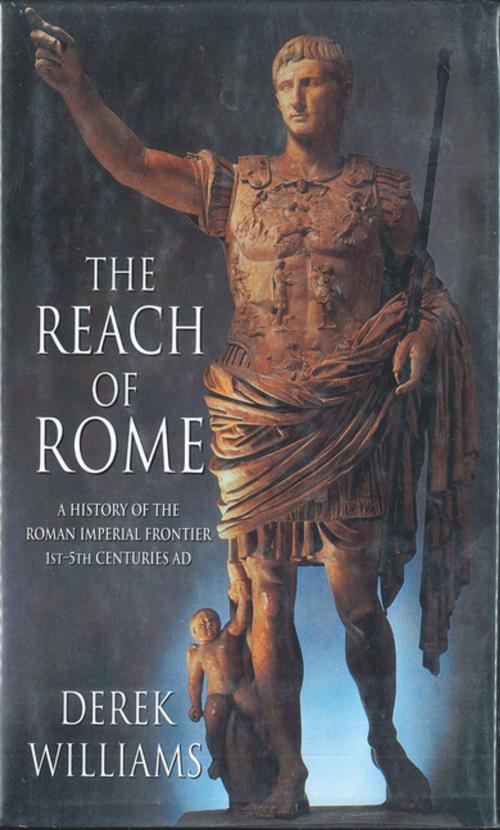The Reach of Rome
A History Of The Roman Imperial Frontier 1St-5th Centuries Ad
Nonfiction, History, Ancient History, Rome| Author: | Derek Williams | ISBN: | 9781250083807 |
| Publisher: | St. Martin's Press | Publication: | May 5, 2015 |
| Imprint: | St. Martin's Press | Language: | English |
| Author: | Derek Williams |
| ISBN: | 9781250083807 |
| Publisher: | St. Martin's Press |
| Publication: | May 5, 2015 |
| Imprint: | St. Martin's Press |
| Language: | English |
The Roman Empire was one of the most powerful forces in history. However, few people realize that this vast empire was guarded by one frontier, a series of natural and man-made barriers, including Hadrian's Wall. It is impossible to have a true understanding of the Roman Empire without first investigating the scope of this amazing frontier.
The boundary ran for roughly 4,000 miles--from Britain to Morocco via the Rhine, the Danube, the Euphrates, the Syrian Desert, and the Saharan fringes; reinforced by walls, ditches, palisades, watchtowers, and forts. It absorbed virtually the whole imperial army, enclosed three and a half million square miles, and defended forty provinces (now thirty countries) and perhaps eighty million Roman subjects. In protecting the empire the frontier made a substantial contribution to the Pax Romana and ultimately to preserving the inheritance of future Europe.
Yet this static mode of defense ran counter to Rome's tradition of mobile warfare and her taste for glory, born of centuries of conquest. The emperors' choice of a passive strategy promoted lassitude and conservatism, allowing the military initiative slowly to pass into barbarian hands.
The Reach of Rome is the first book to describe the entire length of the amazing imperial frontier. It traces the political forces that created it and portrays those who commanded and manned it, as well as those against whom it was held. It relates the frontier's rise, pre-eminence, crises, and collapse and assesses its meaning for history and its legacies to the post-Roman world. Finally, it also tells the story of the explorers who rediscovered its lost works and describes the nature and location of the surviving remains. Includes thirty beautifully designed maps.
The Roman Empire was one of the most powerful forces in history. However, few people realize that this vast empire was guarded by one frontier, a series of natural and man-made barriers, including Hadrian's Wall. It is impossible to have a true understanding of the Roman Empire without first investigating the scope of this amazing frontier.
The boundary ran for roughly 4,000 miles--from Britain to Morocco via the Rhine, the Danube, the Euphrates, the Syrian Desert, and the Saharan fringes; reinforced by walls, ditches, palisades, watchtowers, and forts. It absorbed virtually the whole imperial army, enclosed three and a half million square miles, and defended forty provinces (now thirty countries) and perhaps eighty million Roman subjects. In protecting the empire the frontier made a substantial contribution to the Pax Romana and ultimately to preserving the inheritance of future Europe.
Yet this static mode of defense ran counter to Rome's tradition of mobile warfare and her taste for glory, born of centuries of conquest. The emperors' choice of a passive strategy promoted lassitude and conservatism, allowing the military initiative slowly to pass into barbarian hands.
The Reach of Rome is the first book to describe the entire length of the amazing imperial frontier. It traces the political forces that created it and portrays those who commanded and manned it, as well as those against whom it was held. It relates the frontier's rise, pre-eminence, crises, and collapse and assesses its meaning for history and its legacies to the post-Roman world. Finally, it also tells the story of the explorers who rediscovered its lost works and describes the nature and location of the surviving remains. Includes thirty beautifully designed maps.















